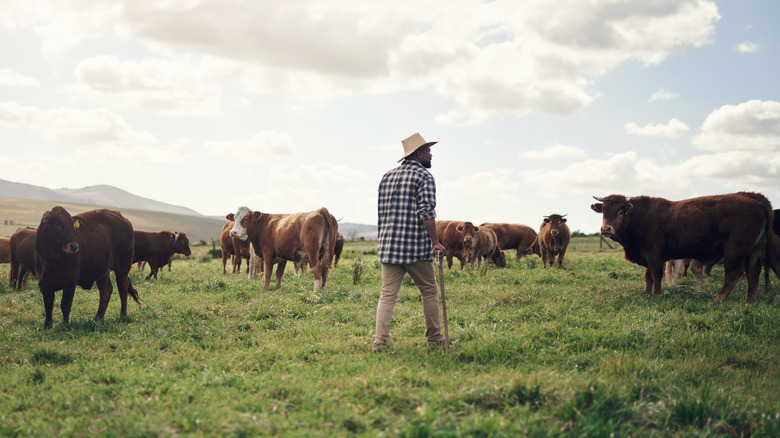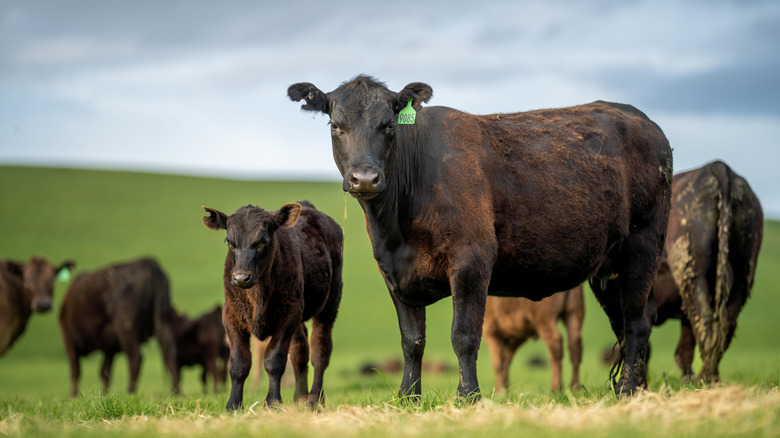What Trump's New Beef Tariff Policy Might Mean For Prices In The Grocery Store
Lately, there's been a lot of talk about foods that will be impacted by tariffs — especially since the rules seem to change on a near-daily basis. Now, the cattle industry is caught in the crossfire. After U.S. President Donald Trump imposed 50% on Brazilian beef in August, he recently announced plans to boost imports from Argentina while keeping tariffs low. According to Trump, the move will lower beef prices for American consumers.
The move has angered U.S. farmers. The Trump administration positioned tariffs as a way to bolster American businesses, but farmers say the move could jeopardize their livelihoods. The United States is one of the world's top beef producers, but the past few years have been bad for beef farmers. Drought and an aging workforce mean herds have dwindled. At the beginning of 2025, there were only 86.7 million cattle in the U.S. — the smallest number since the 1950s. "A deal of this magnitude with Argentina would undercut the very foundation of our cattle industry," said Justin Tupper, President of the U.S. Cattlemen's Association.
The move displeased members of Trump's own party, too — especially from states with big beef industries. Senate Majority Leader John Thune, a South Dakota Republican, expressed concern. "We've been in touch with the White House, Department of Agriculture, U.S. trade rep on all this stuff, trying to figure out where it's headed," he said.
High prices reflect tough times for American farmers
Beef industry insiders argue that consumers are already getting a good deal. "The cost of producing beef today is accurately represented in the consumer markets where it is sold," said Tupper. "Ranchers are facing historic highs for feed, fuel, labor, and land — and those costs have risen far faster than beef prices on grocery shelves." While consumers may cringe at grocery store prices, the relative cost of beef has stayed relatively stable since the 1980s. Beef is hard to produce, but the U.S. cattle industry manages to supply customers with the nutrient-dense food at low prices anyway. In tough times, it's the farmers who take the hit.
Economists and industry experts say that imported Argentinian beef won't do much to lower costs for consumers. It'll just weaken the American cattle industry, hurting farmers and making the U.S. reliant on imported food. Adrian Smith, a Republican Representative from Nebraska, argued that Trump's plans "threaten our domestic food security." Farmers say they need government support — and that's been scarce. While White House spokeswoman Anna Kelly said that the administration will protect ranchers, U.S. farmers are still waiting for support.

